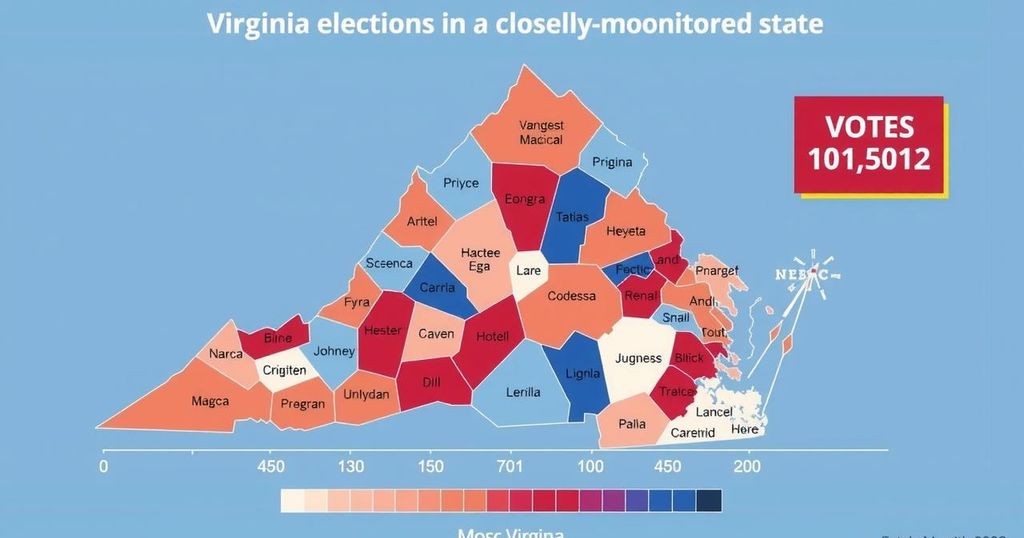Virginia Special Elections: No Major Shift in Voter Sentiment Observed

Democrats maintained their slim majority in Virginia’s legislature by winning two left-leaning districts in recent special elections. National attention focused on these outcomes as potential indicators of voter sentiment following prior election cycles. The results prompt anticipation for the upcoming governor’s race in 2025, considering the implications for both parties amidst a competitive political landscape.
In recent special elections in Virginia, Democrats successfully upheld their slim majority in the state legislature by securing victories in two predominately Democratic districts. The races, which drew significant national attention, were viewed as indicators of voter sentiment following a tumultuous election cycle marked by President Donald Trump’s previous victories. Despite these wins for the Democratic Party, political analysts caution that the upcoming governor’s race in 2025 will provide a clearer picture of voter trends as both parties prepare for heightened competition in that election season.
The special elections occurred just before the commencement of a new legislative session, leaving Democrats with a narrow advantage in the Senate and House of Delegates. Republicans had hoped to shift the legislative landscape in their favor, but the results displayed a continuation of existing political dynamics. A significant factor to consider was the moderate turnout among voters, particularly in Loudoun County, with about 19% engaging in the elections. This turnout was somewhat improved compared to prior elections, suggesting potential resilience among Democratic voters despite post-election fatigue.
Virginia has garnered national interest as a political barometer, particularly since it conducts its gubernatorial elections in the year following presidential races. The results of recent special elections serve as a bellwether for both parties, with analysts particularly focused on the political implications of these contests in the context of the upcoming gubernatorial election. The state has a unique electoral cycle where most state races occur in odd-numbered years, contributing to its significance in the political landscape of 2025, where the governorship and all House of Delegates seats will be contested. The dynamics are compounded by the potential candidacy of incumbent Republican Governor Glenn Youngkin in future presidential races, highlighting the high stakes surrounding legislative control and voter mobilization strategies.
The recent special elections in Virginia reaffirmed the Democratic Party’s current standing within the state legislature while also raising questions about future electoral strategies. With the incumbent governor navigating the complexities of a closely divided legislative body and both parties gearing up for the highly anticipated gubernatorial race in 2025, these developments will be critical in assessing shifts in voter sentiment. As political observers continue to scrutinize Virginia’s political climate, it remains evident that the upcoming electoral battles may yield significant insights into broader national trends.
Original Source: abcnews.go.com







